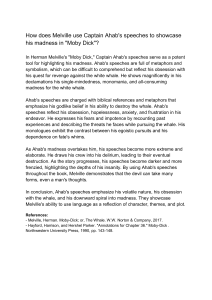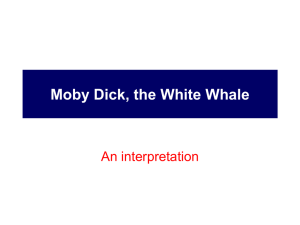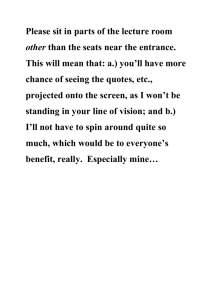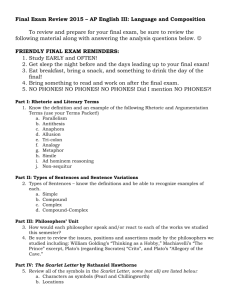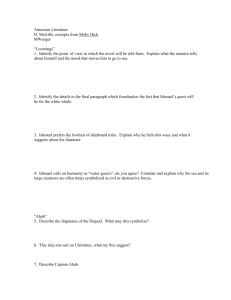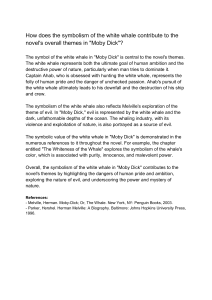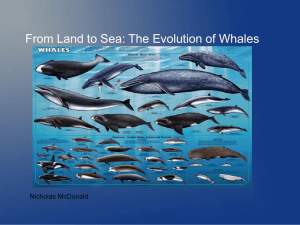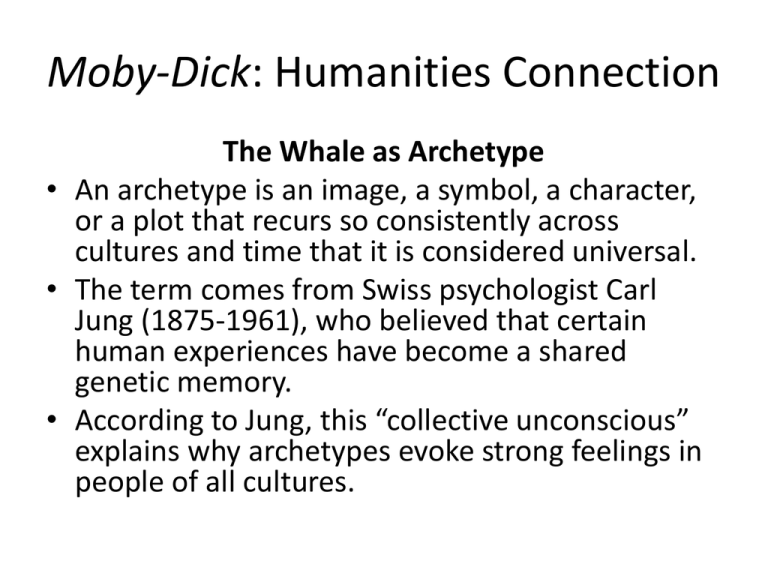
Moby-Dick: Humanities Connection
The Whale as Archetype
• An archetype is an image, a symbol, a character,
or a plot that recurs so consistently across
cultures and time that it is considered universal.
• The term comes from Swiss psychologist Carl
Jung (1875-1961), who believed that certain
human experiences have become a shared
genetic memory.
• According to Jung, this “collective unconscious”
explains why archetypes evoke strong feelings in
people of all cultures.
• The whale had many appearances in myth,
folklore, literature, and art well before Melville
used it as a central symbol in Moby-Dick.
• Perhaps the most famous is the Biblical tale in
which Jonah is swallowed by a whale and then
cast ashore.
• Because the whale is the largest of all animals, its
image evokes fear and awe, as well as a sense of
the power of nature.
• In Moby-Dick, Melville used these archetypal
associations to create fiction of enduring power.
Journal Writing Prompt
•Do you think modern
readers react with fear
and awe to the image
of a whale? Explain.
•Does this illustration
seem like a realistic
rendering of an actual
situation? Explain.
Literary Analysis
1. What does the wind symbolize to Ahab?
2. What symbolic meaning do you find in the comparison
between Ahab and the mast?
3. What symbolic meaning is suggested by the description of
the whale’s behavior as he breaks the water’s surface?
4. What symbolic connection between his own body and the
boat does Ahab seem to feel?
5. What is symbolized by the red flag streaming out from
Tashtego?

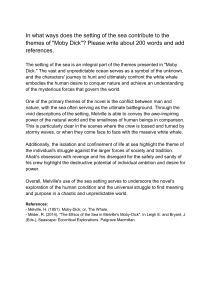
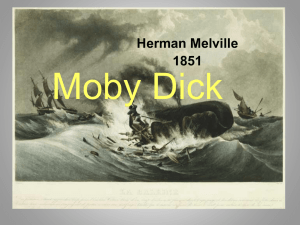
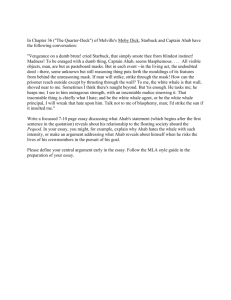
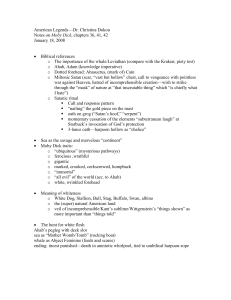
![Blue and fin whale populations [MM 2.4.1] Ecologists use the](http://s3.studylib.net/store/data/008646945_1-b8cb28bdd3491236d14c964cfafa113a-300x300.png)
